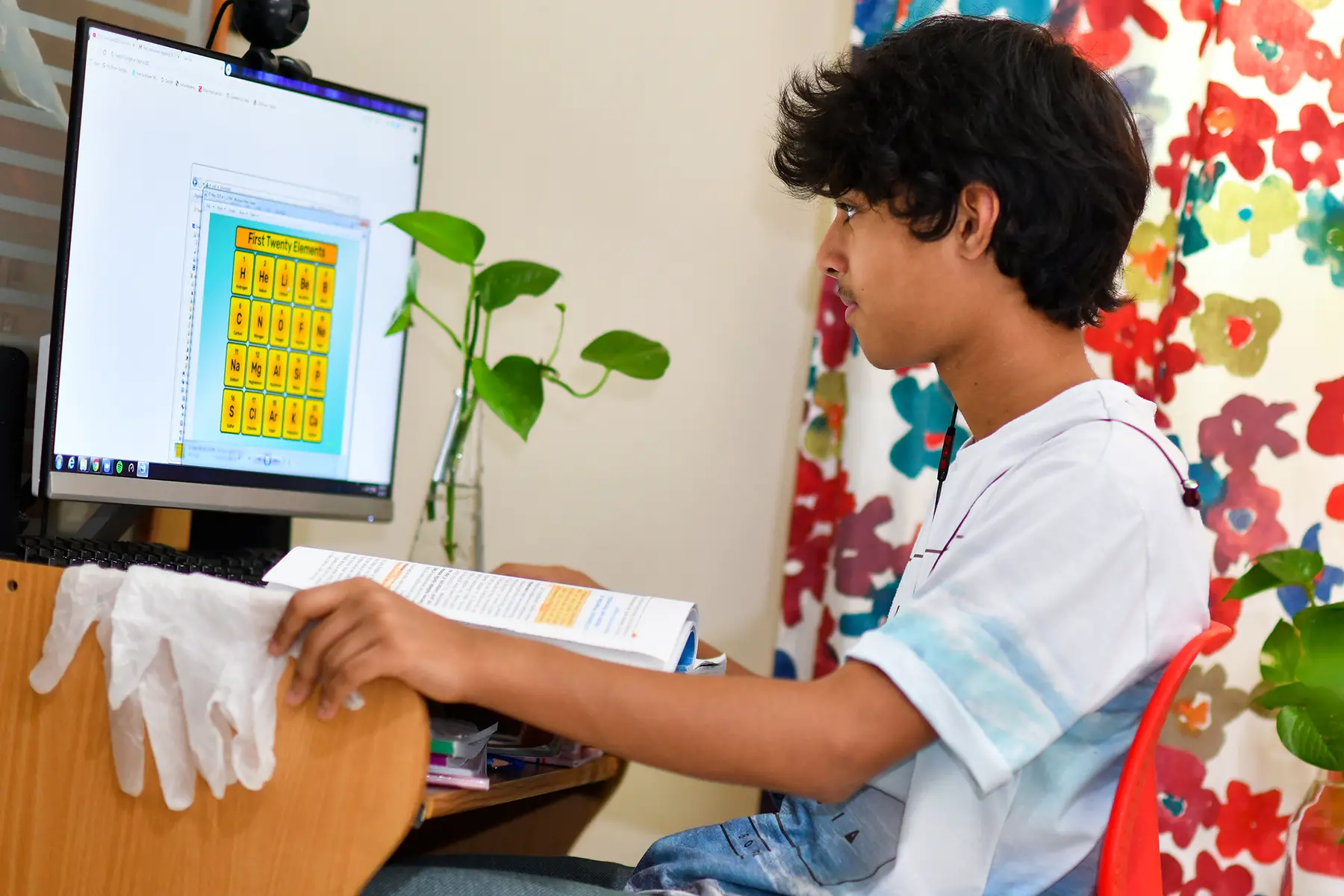Luckily, this helpful guide will walk you through what to consider, which questions to ask, and the range of international school fees in Qatar.
It includes the following sections:
The Qatari education system
Qatar’s population is nearly 90% expat, and, of those expats, the vast majority live in the capital city. Therefore, the education system is mostly centered around Doha; here, expat parents must contend with extremely long waiting lists and, because the country is small, increasing challenges finding appropriate schools.

Public school is free for Qataris, but usually gender-segregated and difficult for expats to access. They also teach primarily in Arabic, which is an excluding factor for most expats.
Private schools, which are often accredited by international educational standards, are much more attractive to expats. They offer parents peace of mind that their children can transition more easily to schools in their home country.
International schools in Qatar
Because public schools are virtually inaccessible to expats, except for exceptional cases. Almost all expats place their children in international schools. This is why finding a spot in an international school can be so challenging; it is also the reason some parents place themselves on waiting lists before even signing an employment contract. In fact, some schools let parents join waiting lists a full year before expected enrollment.
Within Qatar, you will find schools that offer international accreditations, such as International Baccalaureate, IGCSE, and a few other country-specific accreditations. Some international schools will only offer a certain level of instruction, for example, kindergarten, while others will offer the entire K-12 spectrum. Because of the diversity of schools, it is important to keep in mind that the divisions between grades may have different names, such as secondary school instead of high school.
International school curriculums and certificates in Qatar
International Baccalaureate (IB)
The International Baccalaureate program is considered, by some, the international educational standard. This is largely because it is a structured academic, well-rounded, program that emphasizes creativity, critical thinking, and writing. In addition, their focus on service projects is internationally recognized for its rigor.
The study program includes math, science, the arts, literature, and language. Upon completing secondary school, students take a comprehensive exam in order to earn their diploma. In Qatar, 18 schools offer IB.
International GCSE (IGCSE)
The British curriculum’s International General Certificate of Secondary School is widely popular in international schools. Divided into three stages that culminate in A-level certifications, students can use these in their university applications.

The IGCSE is very convenient for parents of students who intend to study in the UK or within the Commonwealth. Students take courses in English language and literature, a foreign language, math, and science.
After the first two years of secondary school, students take the IGCSE, usually through the Cambridge International Examinations Board. After their final two years, they take their A-Level exams in a few fields of study and these results are key for university applications. For that reason, many expat parents find the continuity of study within a British system in Qatar and a British university very convenient.
American high school diplomas and Advanced Placement
The American educational model separates education into elementary, middle, and high school departments. However, it is generally much less structured than other programs. Students in good standing pass their required exams and receive a diploma. They generally study social studies, math, science, English, and a foreign language.
Some parents prefer American schools because they may offer Advanced Placement courses, which many American universities accept as college credit; as well as SAT prep courses. For parents of students intending to study in the US, this smoother transition is very attractive.
Should you send your child to an international school in Qatar?
Qatar has one major city, Doha, where most expats live. This reality, combined with the inaccessibility of public schools, means that international school is one of the only viable options for expat children.
The advantages of international schools
International schools are attractive because the student population is diverse and staff is used to working with expats. Furthermore, your child should have an easier transition to your home country’s education system. That said, do keep in mind that, even though some Qataris do attend international schools, sending your child to one essentially means depriving them of a key institution for potential integration into Qatar.
How to choose an international school in Qatar
Choosing the right international school for your child will depend on a few factors. What language will your child study in? What curriculum makes sense for your family and for your child’s future study plans?

Beyond this, take some time as a family to consider your child’s learning needs, and furthermore, their extracurricular interests. When visiting different schools, bring these up in your conversations. However, keep in mind the long waiting lists when deciding where and when to apply. If you can, it is a good idea to sit in on a class to get a sense of classroom dynamics and teaching philosophy.
Types of international schools in Qatar
International Baccalaureate schools
There are a number of schools offering IB in Qatar. Their language of instruction is usually English and, due to IB’s name recognition, they are very popular. Although the school year in Qatar goes from September to June, each individual school determines its own dates.
To apply you will need to complete an application, submit prior transcripts and immunizations, and pay the application fee. In addition, some schools require interviews or entrance exams. School fees can range from QAR 28,000 to QAR 80,000. Here are a few IB schools in Qatar:
American international schools
Schools that follow the American curriculum will teach in English and try to follow the US educational model. The American school system is quite flexible, therefore it can be combined in interesting ways. For instance, you might see an American school that also offers IB. Many expat parents find this wealth of options very attractive.
To apply, schools may require prior transcripts, a non-refundable application fee, and a complete application form, among other materials. Some schools also require evaluations and/or interviews. Fees range from QAR 25,000 to QAR 80,000. Here are a few schools that follow an American model:
British international schools
British schools are numerous and very sought after in Qatar because the UK and Commonwealth countries are popular further study destinations. Students learn in English. If you are looking to apply, you will likely need to provide a completed application form, prior transcripts, and an application fee. In addition, your child will need to attend any interviews or take part in any assessments. Fees usually range from QAR 25,000 to QAR 70,000. If you are searching for British international schools, here are a few to consider:
Other national international schools
As an expat haven, dozens of nationalities call Qatar home. Because of this, various national schools exist to cater to expats who want their children to be immersed in their home country’s educational values. Keep in mind that some schools give priority to citizens or embassy staff, therefore do your research. Here are some of the available schools in Qatar:
- Bright Future International School (Pakistani curriculum)
- Qatar Finland International School
- Swiss International School Qatar
- Voltaire School (French curriculum)
- International Schools Database – database for Qatar’s international schools




